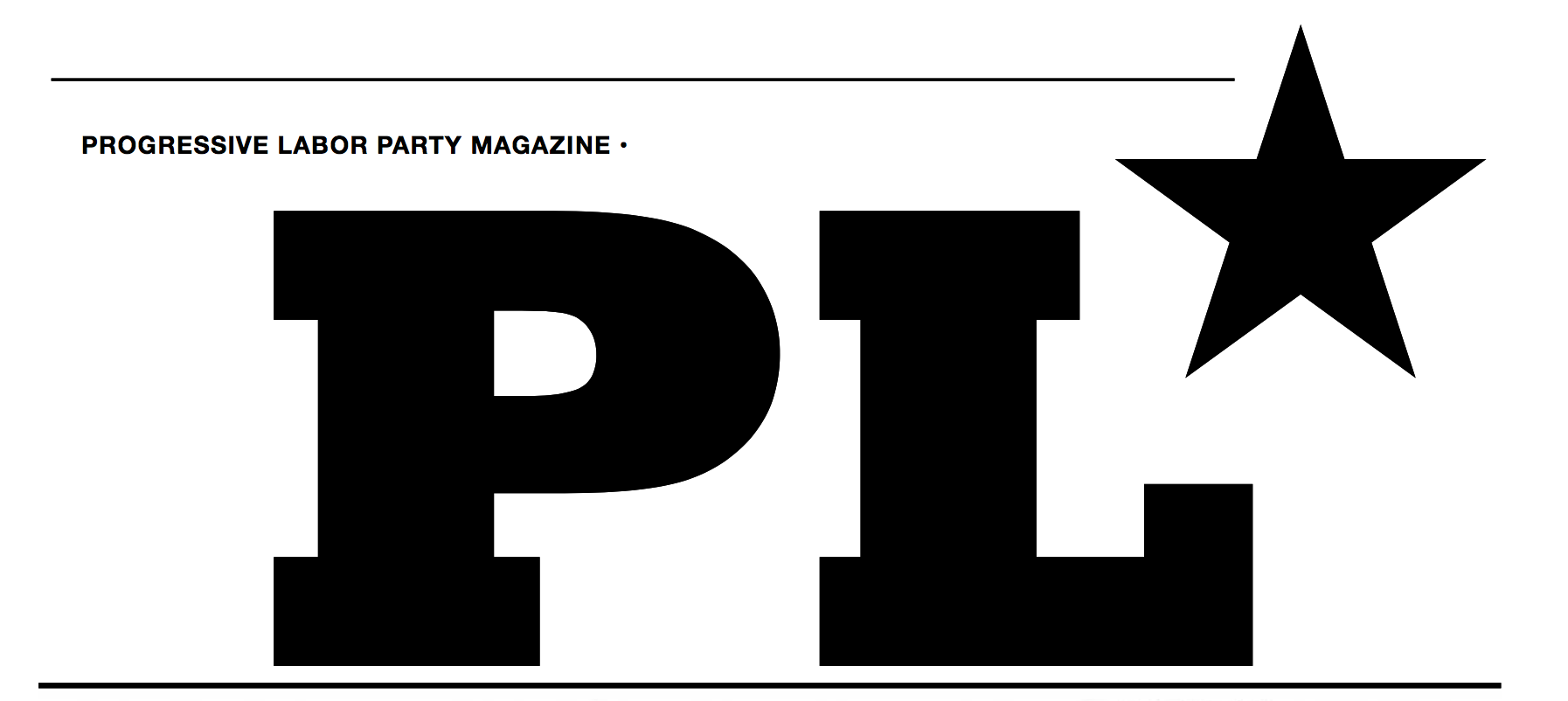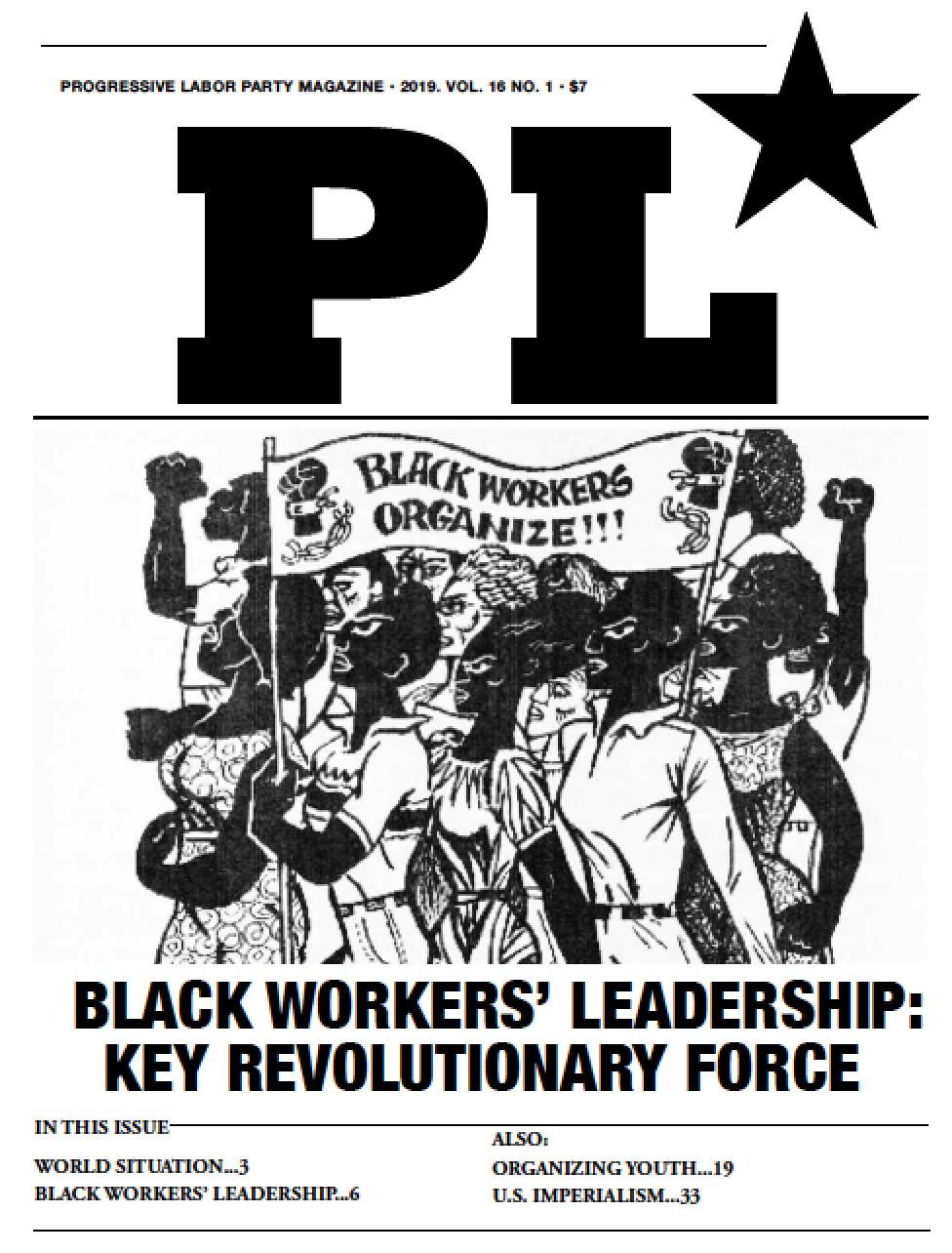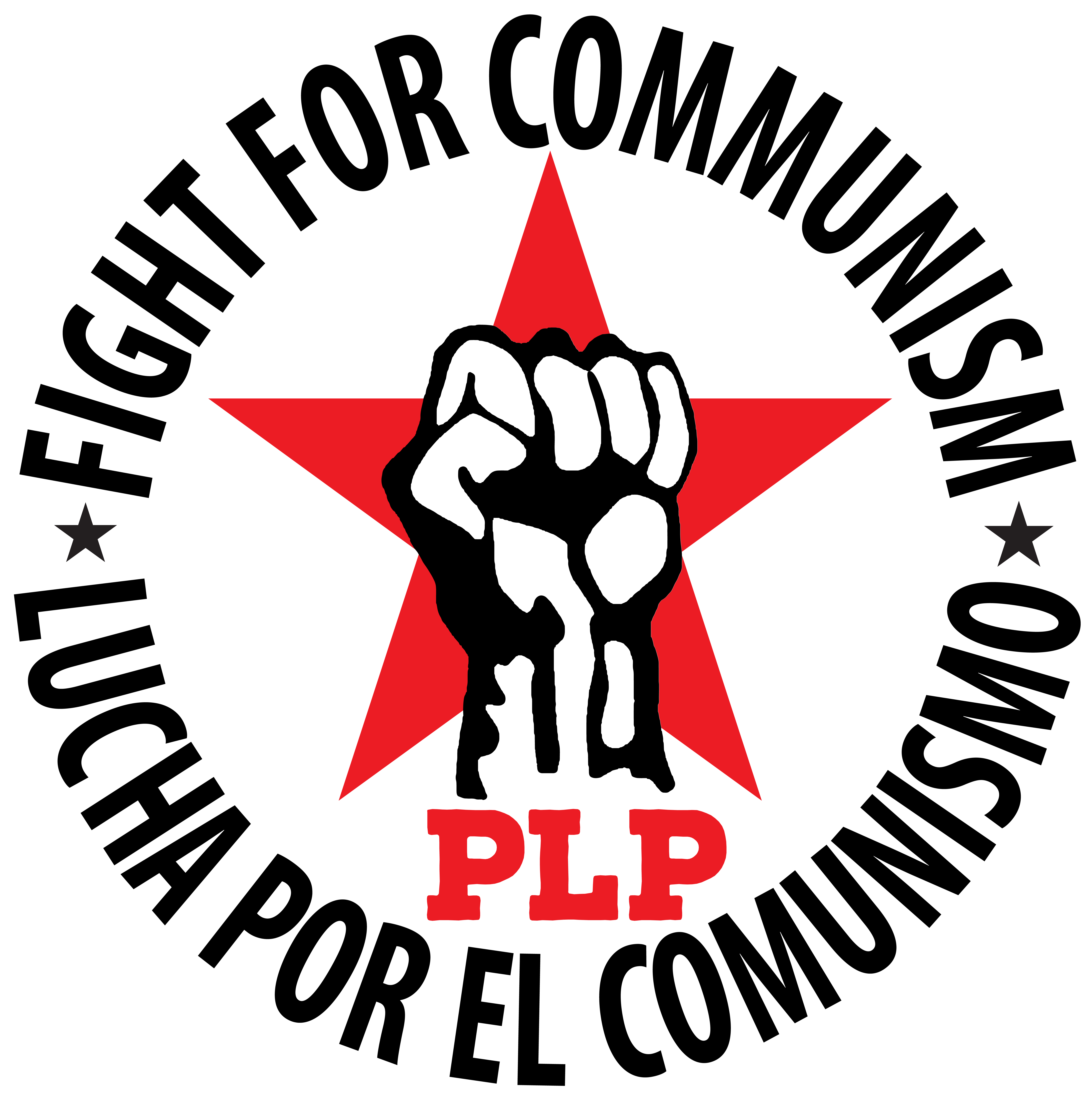1930s: Langston Hughes, major poet of the communist movement
 Friday, March 5, 2021 at 2:36PM
Friday, March 5, 2021 at 2:36PM The previous issue of CHALLENGE (3/3) remembered Langston Hughes as a writer sharply critical of Jim Crow segregation during World War II and as a poet for the U.S. working class—particularly Black workers. Now we’ll flash back to the 1920s and 1930s, the period when Hughes became an advocate for multiracial, anti-capitalist revolution.
A tradition of antiracist fightback ran deep in Hughes’s family history. In 1858, his maternal grandmother, Mary Langston, married Lewis Leary, an abolitionist who died in John Brown’s 1859 raid in Harper’s Ferry. Her second husband, Charles Howard Langston, was an educator and ardent abolitionist.
Hughes’s influences
According to his biographer Arnold Rampersad, young Langston Hughes was influenced by the poetry of Walt Whitman, Carl Sandburg, Paul Laurence Dunbar, and Claude McKay, along with the work of W.E.B. Du Bois, the antiracist, pro-communist writer and historian. In June 1921, Hughes’ poetry was published for the first time in a professional journal. “The Negro Speaks of Rivers” came out in The Crisis, the journal of the NAACP.
In September 1921, Hughes moved to New York to attend Columbia University. Not yet ready for college, he withdrew before the year was out. He plunged into Black cosmopolitan New York and met Du Bois and Jessie Fauset, both writers at The Crisis, and the poet Countee Collins. By 1924, after a journey to West Africa and Paris and an extended sojourn in Washington, DC, he’d become a leading light of the Harlem Renaissance. In March 1925, a landmark issue of Survey Graphic, “Harlem: Mecca of the New Negro” (edited by Alain Locke), contained 10 poems by Hughes, including: “I, too, sing America./I am the darker brother. . . .”
In 1926, Hughes published his first volume of poems, The Weary Blues, and a famous essay for The Nation (June 23, 1926). In “The Negro Artist and the Racial Mountain,” Hughes wasn’t yet ready to attack capitalism or embrace the need for militant, collective antiracism. Instead, he argued for the importance of Black identity and called for racial pride: “Why should I want to be white? I am Negro—and beautiful.”
By the late 1920s, when Hughes was enrolled at Lincoln University, a historically Black institution outside Philadelphia, he was meeting communists as well as Harlem’s cultural leaders. In December 1926, four of his poems were published in the communist monthly New Masses, though they were nowhere near as politically sharp as his work to come.
With the Great Depression, beginning in November 1929, communists took leadership positions in major labor unions. They had an explanation for the Depression and a solution for racist inequalities and capitalist exploitation. They called for multiracial unity and revolution. Hughes was drawn to these ideas in New Masses, and he put his art at the service of revolution.
The Scottsboro Boys
For Hughes and millions of others, a political turning point came on March 25, 1931, when nine young Black teenagers were falsely accused of raping two white young women in a railroad boxcar in Alabama. The arrest and trial of the Scottsboro Boys galvanized communists and antiracists throughout the world. Eight of the teenagers were quickly tried by the racists and sentenced to death; a mistrial was declared for the ninth because he was underage. The Communist Party USA sent in lawyers to challenge the case. The Supreme Court overturned the convictions; one of the women recanted her accusations and even went on tour to defend the defendants. Yet they languished in jail, many of them for decades.
Hughes responded with a terse four-line poem, “Justice,” for New Masses (July 1931), which accompanied a drawing of a lynching by artist Phil Bard.
That Justice is a blind goddess
Is a thing to which we poor are wise:
Her bandage hides two festering sores
That once, perhaps, were eyes.
For the November 1931 New Masses, Hughes wrote “Scottsboro, Limited: A One Act Play.” The cast roster includes “Red Voices,” who counter racist “Mob Voices” and shout out: “We’ll fight! The Communists will fight for you./ not just black—but black and white.” At the end of the play, the “Red Voices” declare: “Rise from the dead, workers, and fight!” For the finale, Hughes directs that “Here the Internationale may be sung and the red flag raised above the heads of the black and white workers together.”
To Hughes and others in the communist movement, the trial of the Scottsboro Boys was both the cutting-edge antiracist fight of the day and a huge opportunity to unite Black and white workers. For the June 1932 issue of New Masses, Hughes wrote the poem “An Open Letter to the South.”
White workers of the South:
. . .
I am the black worker.
Listen:
That the land might be ours,
And the mines and the factories and the office towers
At Harlem, Richmond, Gastonia, Atlanta, New Orleans;
That the plants and the roads and the tools of power
Be ours
…
Let us become instead, you and I,
One single hand
That can united rise
To smash the old dead dogmas of the past—To kill the lies of color
That keep the rich enthroned
. . .
Let us get together, say:
“You are my brother, black or white.
You my sister—now—today!”
. . .
We did not know that we were brothers.
Now we know!
Out of that brotherhood
Let power grow!
We did not know
That we were strong.
Now we see
In union lies our strength.
. . .
White worker,
Here is my hand.
Today,
We’re Man to Man.
Good Morning, Revolution
As Hughes wrote the poem, in the spring of 1932, he was preparing to join a group of 22 writers, journalists, and actors to travel through the Soviet Union. He mailed back from the USSR to New Masses his rousing poem “Good Morning Revolution,” which was excerpted in the last issue of CHALLENGE. After writing a number of commissioned pieces for Soviet journals and a short book, A Negro Looks at Soviet Central Asia, Hughes returned to the U.S. in the summer of 1933. It was a pivotal period in U.S. politics, when communists played a big role in the fight against rising fascism, both in Europe and inside the U.S.
For the remainder of the 1930s, Hughes continued writing his radical poetry. He also traveled to Spain to report on the Spanish Civil War—the topic of our next CHALLENGE article.
The work of Hughes shows that a capitalist understanding of art as being from and for the individual is used to divorce workers from the material world. Hughes is an example that art from and for the working class can advance our fightback. Let’s celebrate Langston Hughes as part of our communist legacy. His antiracist work and writing gave us a model for working-class unity and revolutionary optimism.
Biographical information is drawn from Arnold Rampersad, The Life of Langston Hughes, 2 vols. 2nd edition. New York: Oxford, 2002; and Arnold Rampersad, ed. The Collected Works of Langston Hughes, 3 vols. Columbia: University of Missouri Press, 2001.
 antiracism,
antiracism,  art,
art,  history,
history,  langston hughes,
langston hughes,  poetry
poetry 




 Progressive Labor Party (PLP) fights to destroy capitalism and the dictatorship of the capitalist class. We organize workers, soldiers and youth into a revolutionary movement for communism.
Progressive Labor Party (PLP) fights to destroy capitalism and the dictatorship of the capitalist class. We organize workers, soldiers and youth into a revolutionary movement for communism.




Reader Comments